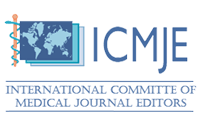Helicobacter Pylori Status in Explant Livers of Liver Transplant Recipients in a European Patient Cohort
Anna Hüsing1 , Wolfgang Hartmann2 , Inga Grünewald2 , Sameer Dhayat3 , Jörg Haier3 , Verena Böhmer4 , Gerold Thölking5 , Hartmut H Schmidt1 , Tilmann Spieker
Affiliation
- 1University Hospital Muenster, Department of Transplant Medicine, 48149 Muenster, Germany
- 2University Hospital Muenster, Gerhard-Domagk-Institute of Pathology, 48149 Muenster, Germany
- 3University Hospital Muenster, Department of General and Visceral Surgery, 48149 Muenster, Germany
- 4Institute for Pathology, Klinikum Fulda gAG, Fulda, Germany
- 5University Hospital of Münster, Department of Medicine D, Division of General Internal Medicine, Nephrology and Rheumatology, 48149 Münster, Germany
- 6Institute for Pathology at St. Franziskus-Hospital, Muenster, 48145 Muenster, Germany
Corresponding Author
Iyad Kabar, MD, Department of Transplant Medicine, University Hospital Münster, Albert-Schweitzer-Campus 1, Gebäude A14, Muenster 48149, Germany, Tel: +49-251-8344957; Fax: +49-251-8357771; E-mail: iyad.kabar@ukmuenster.de
Citation
Iyad Kabar., et al. Helicobacter Pylori Status in Explant Livers of Liver Transplant Recipients in a European Patient Cohort. (2017) J Gastrointest Disord Liver Func 3(1): 94- 97.
Copy rights
© 2017 Iyad Kabar. This is an Open access article distributed under the terms of Creative Commons Attribution 4.0 International License.
Keywords
Abstract
Background and study aims
Helicobacter pylori (H. pylori) are known to be associated with several intestinal and extra-intestinal diseases such as peptic ulcers, mucosa-associated lymphoid tissue lymphoma, gastric cancer and/or idiopathic thrombocytopenic purpura. Recently, H. pylori genomic DNA has been detected in liver tissue of patients with chronic liver diseases. Furthermore, some studies suggested that detection of H. pylori is associated with progressive liver disease. However, the influence of this organism on the progression of chronic liver diseases remains unclear. The aim of this study was to evaluate the role of H. pylori in patients undergoing Liver Transplantation (LT) owing to end-stage liver disease.
Patients and methods: This retrospective study enrolled 50 explant liver tissue from consecutive patients undergoing LT at the University Hospital of Muenster between January 2011 and December 2012. H. pylori DNA was detected in specimens by PCR.
Results :We successfully extracted DNA from every liver tissue sample; however, H.pylori were not detectable in any liver specimen tested.
Conclusion: In our patient cohort, H. pylori were not detectable in explant liver. Based on these results, H. pylori do not appear to have a significant impact on the progression of liver disease in our patient cohort.












